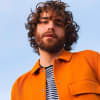10 Things to Do at the Jewish Ghetto of Rome
Rome's Jewish quarter is one of the treasures of the Eternal City: I tell you how to discover it and what to do to make the most of it.

Hebrew symbols in Rome's Jewish Quarter | ©Unsplash
Visiting the ghetto or Jewish quarter of Rome is one of the things to do in Trastevere. Why? Because it is the oldest in Europe and throughout its history it grew to house a very important Jewish community.
Today, Rome's Jewish quarter is an area of boutiques, kosher restaurants and pastry shops, and home to the city's synagogue. Every corner and every nook and cranny is a place to lose yourself in, with ancient markets, fountains, and theaters, which you can discover on one of the best walks in all of Rome.
Here are all the must-see sites in Rome's Jewish Quarter:

Rome Trastevere and Jewish Ghetto Tour
Stroll around and get to know Trastevere in detail
Discover this picturesque neighborhood in depth with an expert guide who will tell you all the curiosities and information you should know about this medieval neighborhood.
With this tour of Trastevere and the Jewish Quarter, you will have the opportunity to discover the oldest Jewish quarter in Europe and Trastevere with an expert guide who will tell you all about the history of its monuments, squares and points of interest. You will pass by the Basilica of Santa Cecilia in Trastevere, the Basilica of Santa Maria in Trastevere, Mattei Square and the Portico of Octavia.
A tour that will dazzle you and where you can explore restaurants and boutiques that will impress you.
Recommended if: you want to know Trastevere in depth and not miss any detail.
1. Take an expert tour of Rome's Jewish Quarter
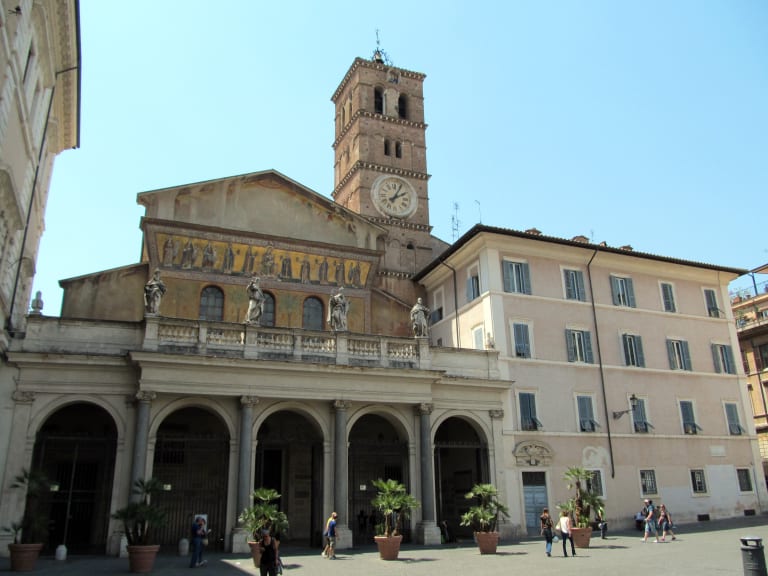
An alternative to preparing this tour on your own is to take a tour of Trastevere and the Jewish quarter, where you will not miss any of its points of interest: the Portico of Octavia, the Marcello Theater, the Fountain of the Turtles and the ruins of Torre Argentina, as well as places like Piazza Farnese and the famous Basilica of Santa Maria in Trastevere.
For a very affordable price you will have a tour of almost two hours; it is a very good option if you are making a shorter trip to Rome and do not have time to organize your visit, but you do not want to miss its Jewish quarter.
2. Cross to Tiber Island, a place to enjoy the summer

If you're taking a tour of Trastevere and the Jewish quarter, I recommend that you take the opportunity to relax on Tiberina Island, a great place to spend an afternoon in Rome. This boat-shaped island is located in the middle of the Tiber River, and is connected to Trastevere and the Jewish quarter through two bridges, the Cestius and Fabricius, one of the oldest in Rome. In its surroundings you will find cafes, restaurants, food stalls and open-air cinema.
Tiber Island is a place that was historically avoided because of its dark legend and bad omens (the islet is said to have been formed from sediment accumulated over the corpse of Tarquinius the Superb, the last Etruscan king of Rome) and where a temple to the Roman god of Medicine was built to stop the advance of the plague in the 3rd century. This is something I love about Rome: every place holds a story you don't expect.
3. Admire the Portico of Octavia, a historic building
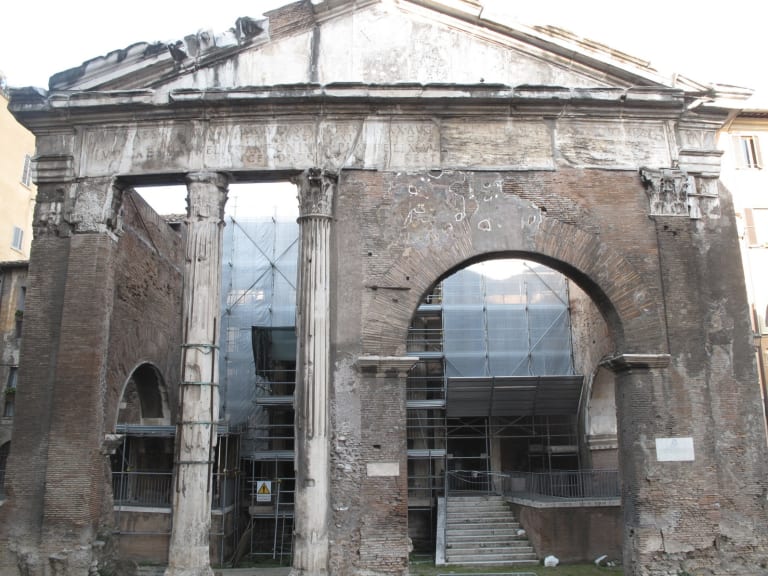
The Portico of Octavia, which you can see if you decide to take a tour of Trastevere and the Jewish Quarter, is a building from ancient times, built by Octavia the Younger, sister of Emperor Augustus, which housed two temples dedicated to Jupiter and Juno, as well as a library and a school. It is located in the rione of Sant'Angelo, which is considered the main street of the Jewish quarter of Rome, and what today looks like a ruin is actually a building full of history.
In the adjoining church sermons were given and the Jewish community of the quarter was forced to attend, until the eighteenth century when freedom of worship was decreed in Rome.
4. Stop by the Teatro Marcello, the little brother of the Colosseum

If when you see this building you can't help but think of a visit to the Colosseum, you should know that the Teatro Marcello was something like the sketch of the most important building in Rome. It is an open-air theater from the time of Augustus, where musical and theatrical performances were held.
Today, the theater houses an ancient palace converted into private residences, and popular shows are still held in the surrounding area, especially in summer. If you are traveling to Rome during the summer season and you are taking a tour of Trastevere and the Jewish quarter, I recommend you stop by the area as the lighting is usually very special at nightfall.
5. Taste typical dishes in the area

In case you want to maximize your experience, you can take a gastronomic tour of Trastevere, Campo dei Fori and the Jewish Ghetto, or book on your own in a restaurant or cafe if your plan is to have lunch or dinner in the Trastevere area. Many restaurants are closed on Friday nights or even Saturdays, so I recommend visiting the Jewish quarter during the week.
As in the rest of Rome, in the Jewish quarter there are restaurants designed for tourists that I recommend you avoid at all costs and the really good ones fill up quickly, so I recommend you book a table in advance.
6. See the Fountain of the Turtles, one of the most curious fountains in Rome

From Via d'Ottavia, where the portico is located, you will reach Via di Sant'Ambrogio and from there Piazza Mattei, places that are included in the tour of Trastevere and the Jewish Quarter. There you will find the Fountain of the Turtles, one of the most curious in Rome, and in its surroundings you will see remnants of the history of the people who lived in this neighborhood, with golden plaques that remember the Jews who were killed in concentration camps.
It is here that you realize that the days of bustle that filled the neighborhood with life ended in 1943, when in a single day about 2,000 of the 7,000 people who were part of Rome's Jewish community were forcibly taken away. What remains today is just a reminder of an earlier era.
Before continuing your walk, I recommend sitting in Mattei square to watch the people go by and try to imagine what this neighborhood used to be like in the last century.
7. Visit the Synagogue in the Jewish quarter
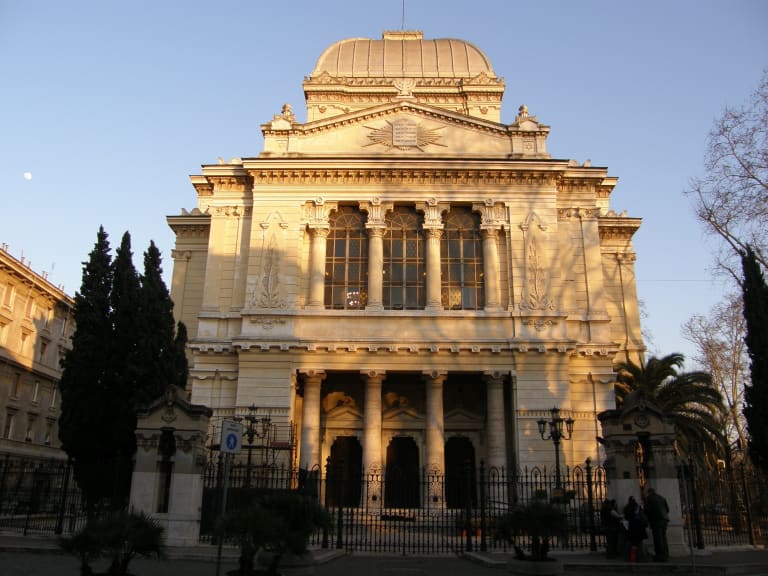
Rome's synagogue is one of the largest in Europe, and was built to commemorate the moment when the Jews of Italy gained citizenship status.
Its square dome distinguishes it from any other religious building in Rome, and the art nouveau decorations on its exterior make it a distinguished and beautiful temple, especially when the sun shines on its columns and stained glass windows.
If you are lucky on your tour of Trastevere and the Jewish Quarter, you will pass by the synagogue in the Jewish Quarter when music is being played on its impressive organ. If you have time to spare, I recommend going inside and admiring the colorful interior of the building, which you can only do on a guided tour through the Jewish Museum entrance.
8. Stroll along Largo di Torre Argentina, site of Julius Caesar's death
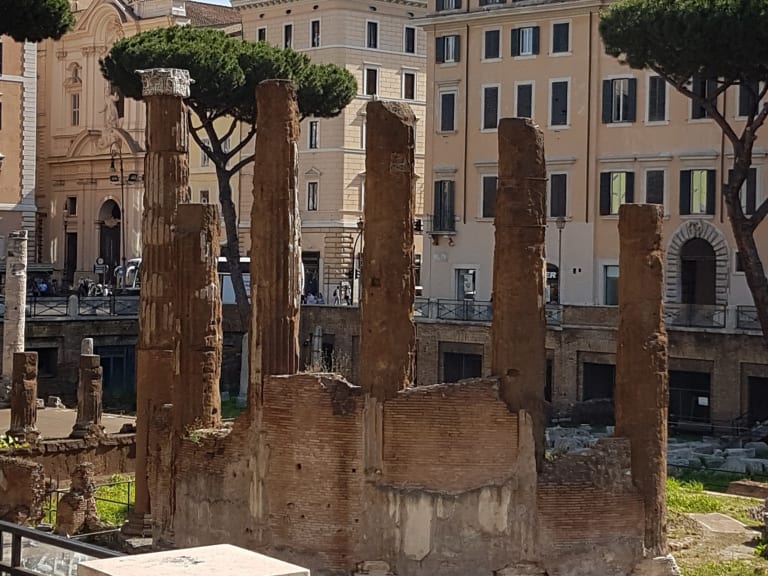
To end your tour of Rome's Jewish quarter, you will find Largo di Torre Argentina square to the north. Here you can see ruins from the time of the Republic: four Roman temples and what remains of the ancient Theater of Pompey.
Emperor Augustus ordered the construction of a monument to commemorate the site of Julius Caesar's assassination while presiding over the Senate meeting in Pompey's Curia. Today, you can see the ruins of this building at the Torre Argentina archaeological site.
And if you love cats, this site will become one of your favorites in all of Rome because of the shelter for abandoned cats in the area. You'll see them wandering and playing among the ruins, giving Torre Argentina a mystical and somewhat unreal aura.
9. Taste the pastries at Pasticceria Boccione

In the narrow streets of the Jewish quarter, you will find more than one local store with typical products of Jewish heritage, but my favorite is undoubtedly the Pasticceria Boccione. From the outside you won't be struck by its small shop window, but I assure you that it's worth going in and choosing one (or several) of its delicatessen.
It is ideal for a snack if you are walking around the area and want to kill your appetite between meals. You'll find it on Via del Portico d'Ottavia.
10. Visit the surroundings of the Jewish quarter

Strolling around Rome's Jewish quarter is one of the things to do in Trastevere and what better way than with a guided tour. It is close to Piazza Venezia and Piazza del Campidoglio, so adding a visit to the Capitoline Museums to the day can be a perfect way to complete the day. If you want to read more about this experience, I've written a guide that you might find useful: Capitoline Museums in Rome: Tickets and Tours.
How to prepare a visit to the Jewish Quarter of Rome
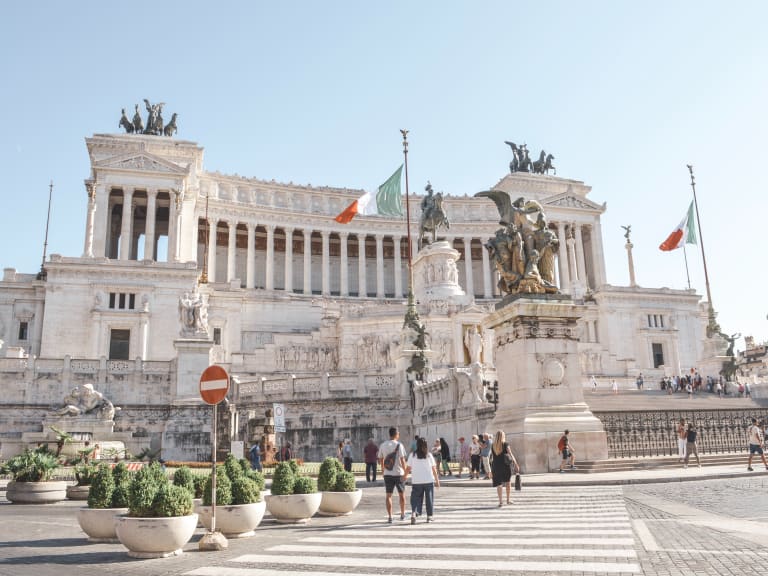
You already know what you have to see in Rome's Jewish quarter, now you just need to know how. Read on and I will share with you all the tips that will help you enjoy the experience to the fullest and have a great afternoon in this area of the city.
Where is the Jewish Quarter of Rome
The great thing about the Jewish quarter is that it is actually part of the center of Rome, even though it may seem like it is a separate area that you need to prepare for and set aside a whole day for. Not at all: the easiest way to start exploring the Jewish quarter is to get to Piazza Venezia or the Vittorio Emanuele monument. The Jewish ghetto is the area southwest of this location, bounded by Via delle Botteghe Oscure (to the north), the river (to the south), Via del Teatro di Marcello (to the east) and Via Arenula (to the west).
How long does it take to visit the Jewish quarter of Rome?
To complete the itinerary I have given you in this article, it took me about three hours. Considering how much I stopped to admire details, get a little lost and explore what caught my eye along the way, I'd say you can even visit Rome's Jewish quarter in an hour and a half to two hours.
My recommendation, especially if you go in summer, is to set aside an afternoon to walk around here and have a drink around the Tiber Island area and sit and enjoy the sunset reflecting on the river. This, of course, changes if you decide to book a guided tour of this area, as this experience will take you on a slightly different and slightly shorter tour.
